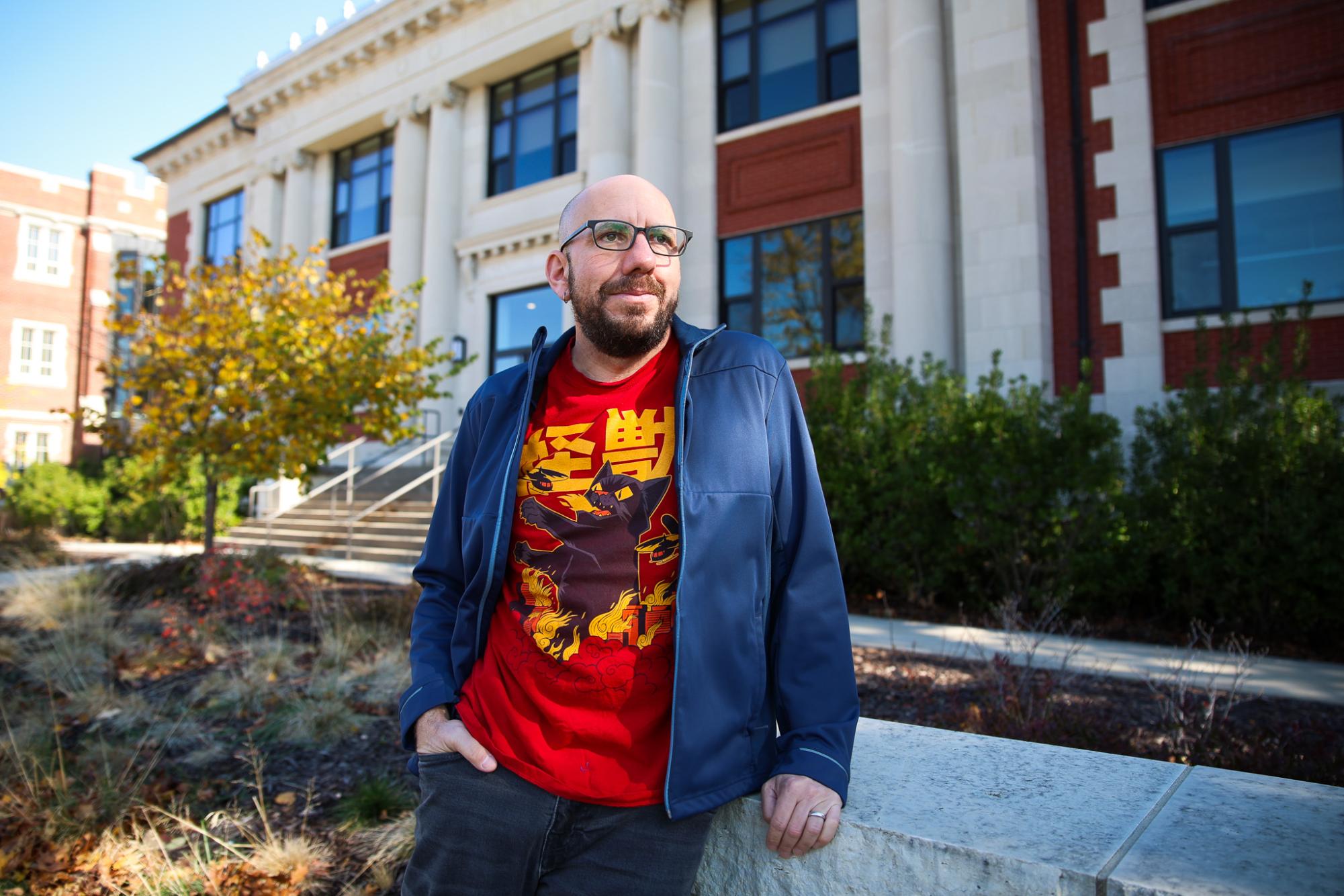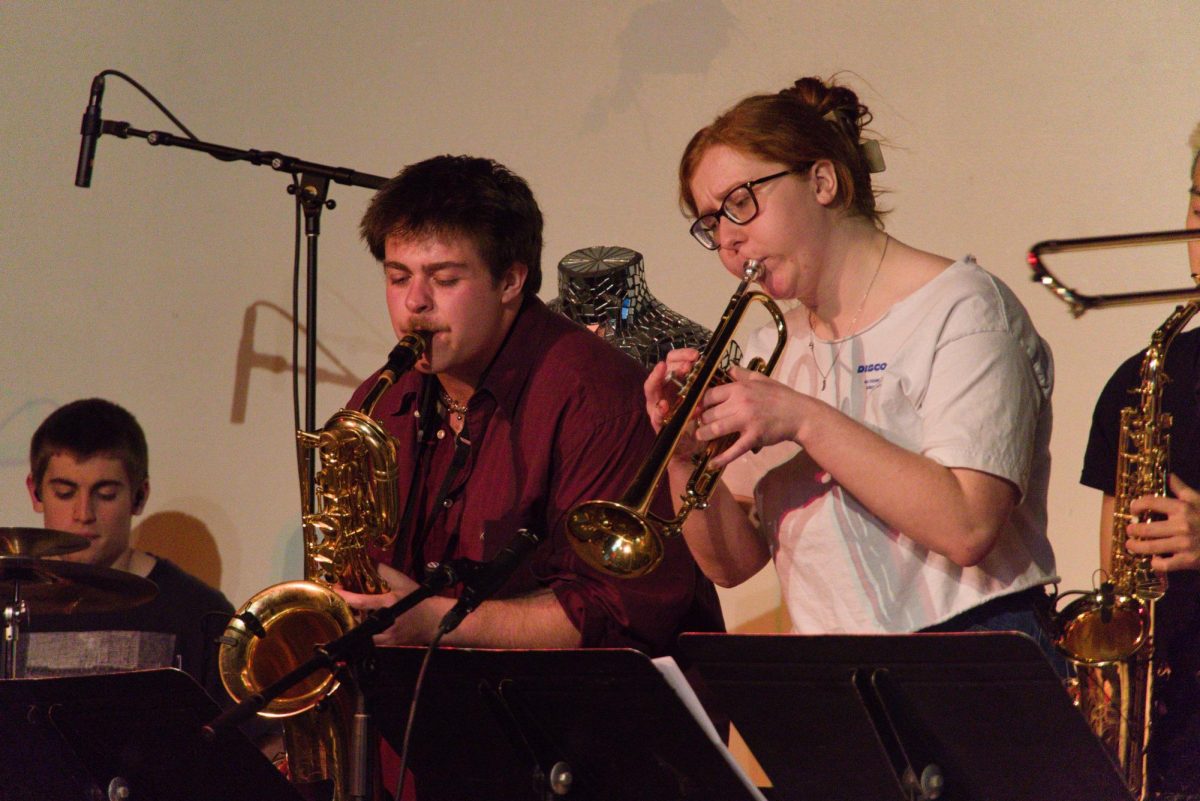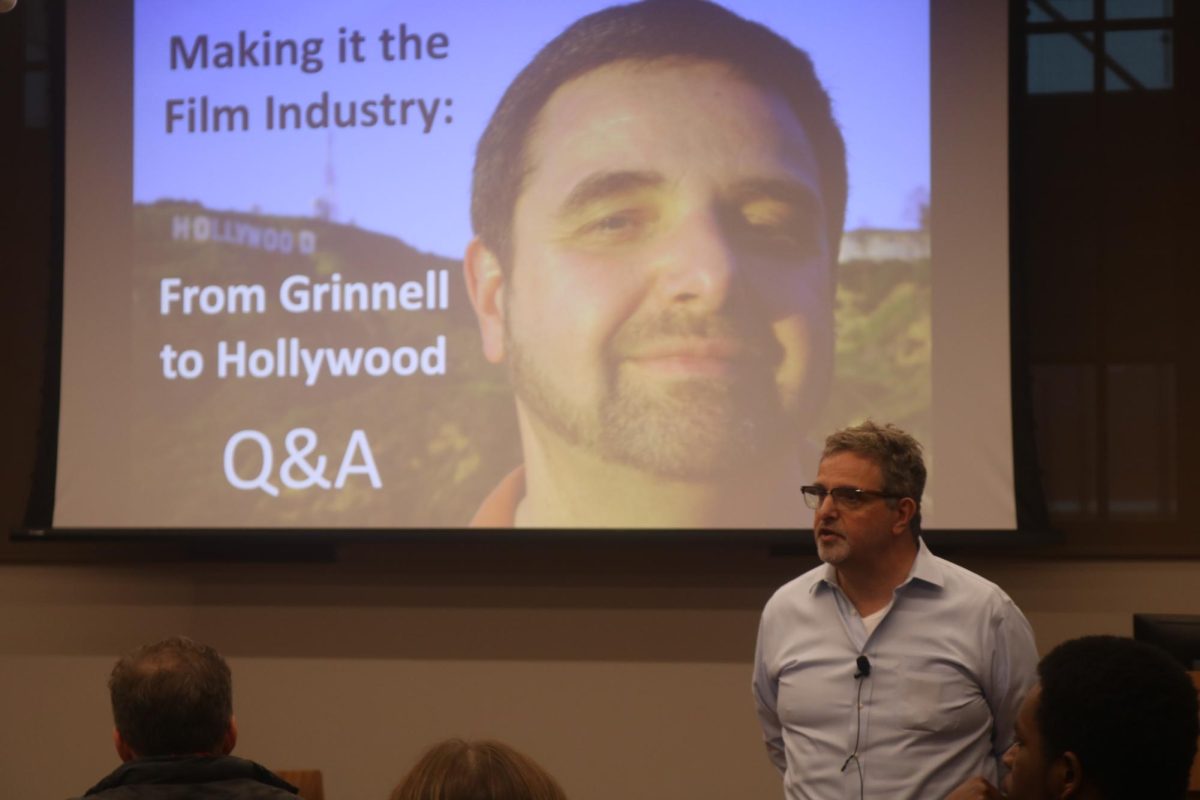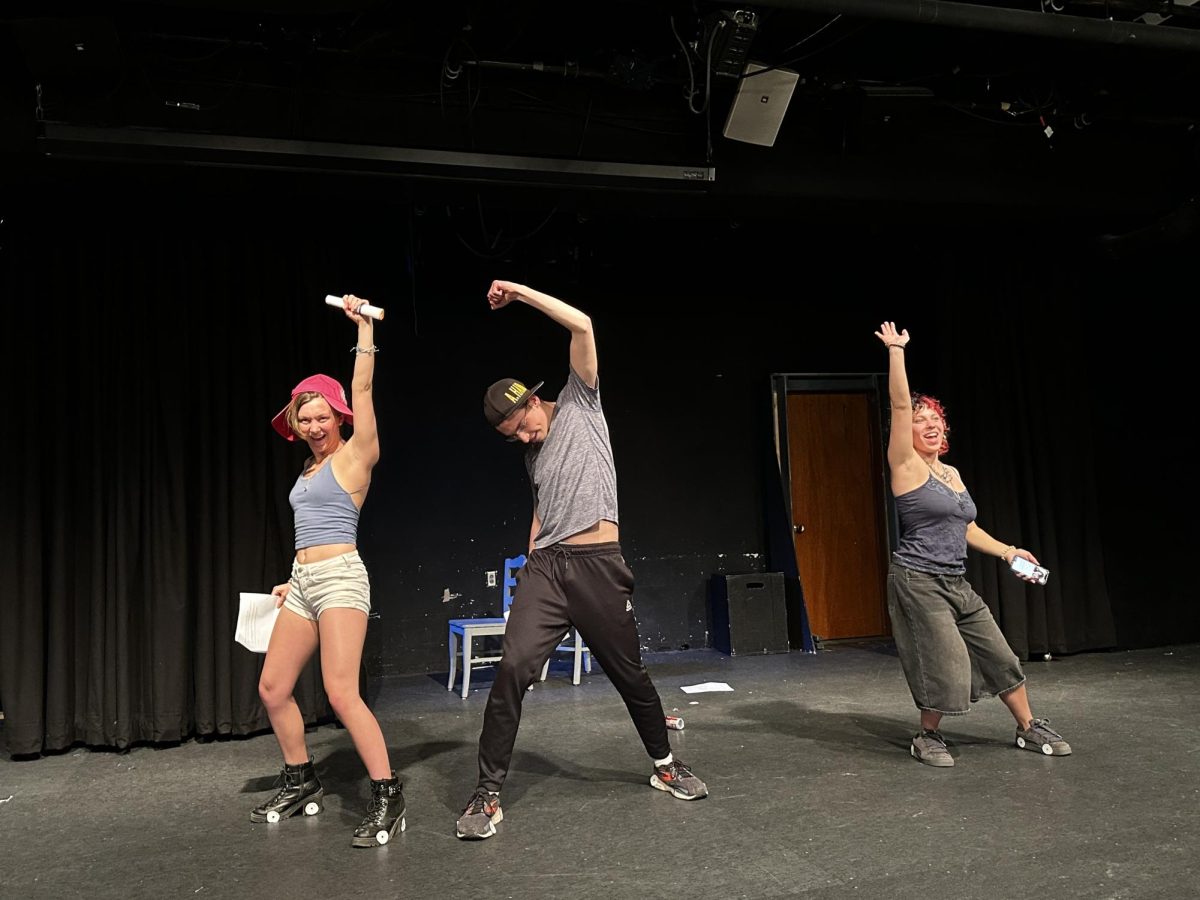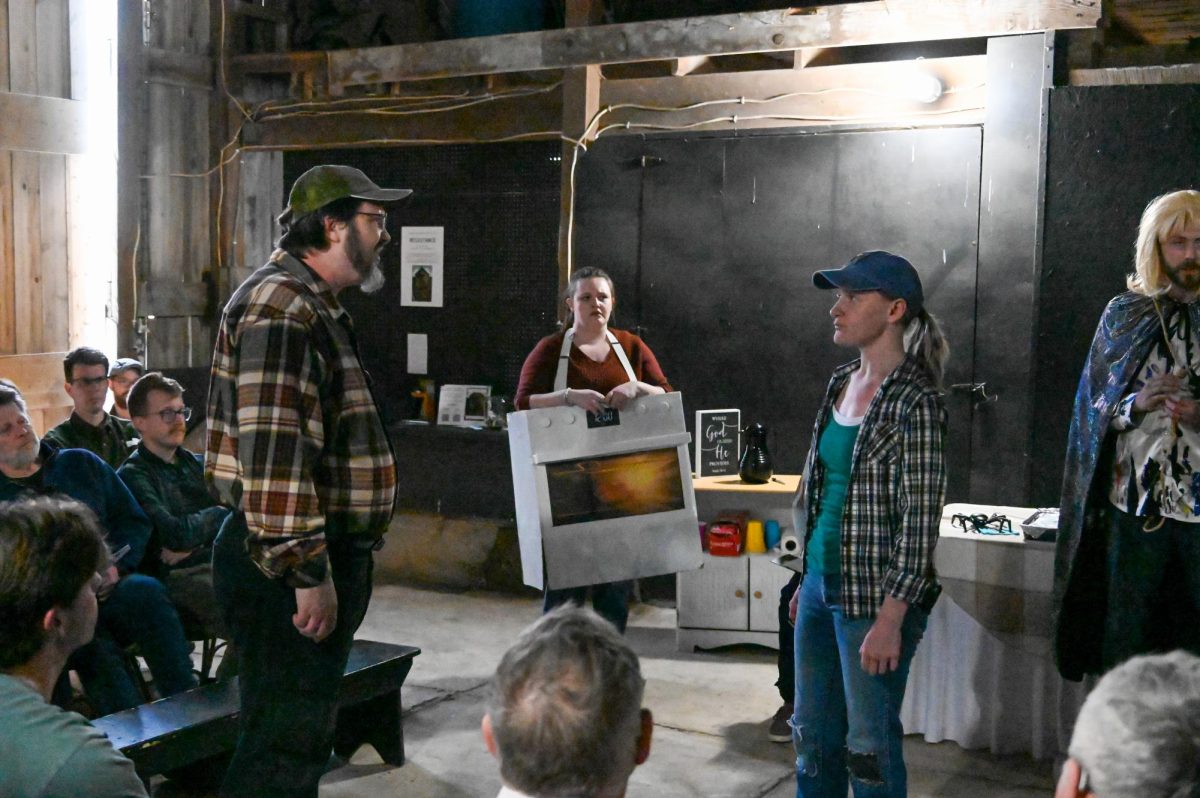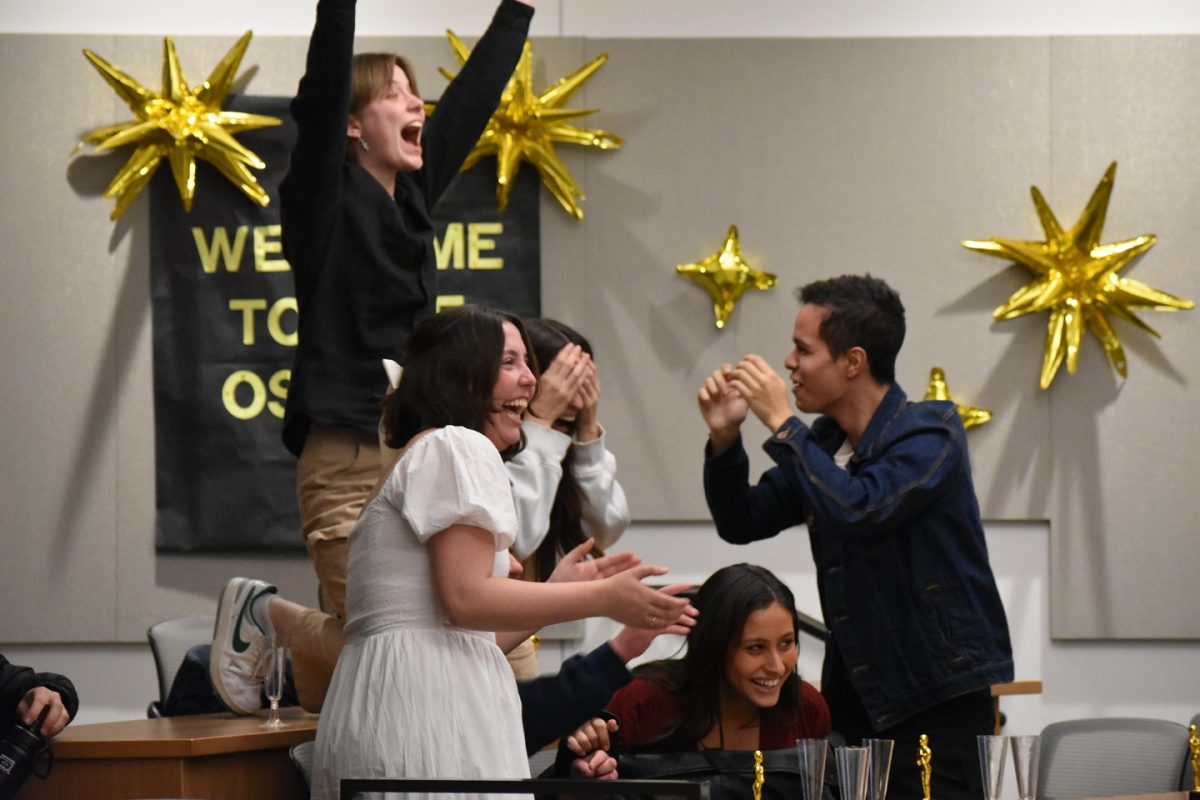On Wednesday, Oct. 30, rain fell hard. On Thursday, Oct. 31, the College’s Catering Services woke up and brewed coffee for Alexi Zentner’s `97 Writers@Grinnell (W@G) event, in order to caffeinate audience members at 4:15 p.m. in the Joe Rosenfield ’25 Center (JRC) room 101.
“You tell people never to start a story with the weather or with someone waking up making coffee,” the narrator’s wife says in Zentner’s short story “Formula.”
“That’s for other writers,” the narrator retorts. “For beginners. You should never start a story before the story starts unless it’s important to the story.”
Since the beginning of his career as a fiction author — he drafted “Formula” toward the end of his Master of Fine Arts in Fiction at Cornell University — Zentner has been negotiating the boundaries of writing truisms, investigating the porous lines of genre and authorship, alongside testing readers’ capacities for empathy in his characters. Under his own name, he published three literary fiction books — “Touch,” “The Lobster Kings” and “Copperhead,” most recently published in 2019. His first literary influences, all with deep ties to his birth country Canada, were Michael Ondaatje, Alice Munroe and Margaret Atwood. He is also a screenwriter and a member of the Writer’s Guild of America. At Binghamton University, he is a professor of English and creative writing, where he teaches creative writing and screenwriting, and the director of graduate studies in English.
In 1997, Zentner studied political science and gender and women’s studies at Grinnell College. In 2024, he returned for W@G and the Learning from Alumni course.
In the introduction to the reading, Hai-Dang Phan, W@G director and associate professor of English, teases Zentner’s stories to be “potentially spooky,” an uncertainty on that glum Halloween day. Zentner shared with The S&B later that he was disappointed he did not see more people in costumes. Though, outwardly speaking, he may have seemed not to don one himself, opting for a dark gray hoodie and studs.
Zentner first read aloud “And a Lie,” based on the game two truths and a lie, followed by “Formula.” Subverting the standard silliness of the game, Zentner said a player of the game presented “three truly terrible and unforgivable” actions — vehicular manslaughter, rape and drowning.
Two of his family members, both in the audience, were split on whether he should have read this story, his wife Lorie a no and child Zev a yes. While Zentner prefaced the story as “spooky,” his wife had thought it “dark.” In sharing snapshots of his work, he said this is not representative of the whole of his work, which he considers to be uplifting. Yet, in returning to his older work, he said that he had forgotten about the “grimness even within the humor.”
“Sometimes, the answer to what it means to be human is unpleasant,” Zentner said.
Before being a published author, he worked as a managing editor for Riverside-Brookfield Landmark in suburban Chicago. He was “Muppet handing” his way through this job. “I was a good writer, but I was a terrible reporter,” he said. During this stint, Zentner said that he was forced to call the same man every week to inquire about a rumor that the man had been fired.
“I don’t like confrontation,” said Zentner.
And so in his writing, often concerning the things that nag him, he does not choose the mode of confrontation to examine fears — both the visceral, the moral and what lies between and outside of the two. Rather, he asks questions of them.
Under the pseudonym Ezekiel Boone, he has published horror and thriller trilogy “The Hatching,” which his two college-aged children also contributed to. The series was born out of an image Zentner could not shake — a spider eating its way through a human body. He said that after this publication, people sent him spider GIFs over email for years. Someone even suggested that he do a photoshoot with spiders.
“I am scared of almost everything,” Zentner said. “ I have never watched a horror movie without my hands over my eyes.”
For W@G, Zentner said he made a decision to read works that he had written closer to the beginning of his fiction career, rather than from his most recent novel “Copperhead,” published in 2019 and “tough” to read aloud. This novel follows an eighteen-year-old football player named Jessup deciding whether to condemn his stepfather, the “one source of warmth and kindness in his life” and white supremacist, for a brutal hate crime.
In a precursive letter to the reader of this novel, not a common facet of Zentner’s work, he recounts neo-Nazis firebombing his social worker parents’ office. Here, Zentner asks, “Is hatred as complicated as love? What if I had been another boy?”
Jessup, a character that haunts Zentner, is still someone whom Zentner feels empathy for. Here, he differentiates between having empathy for a character, a quality Zentner said a good artist cannot be without, and forgiving them.
“I understand that your history and your background influence who you are, but it doesn’t stop you from trying to be better,” said Zentner. “And I think that’s the entire human journey — how do you rise above where you came from?
As Zentner navigates shifts in genre and switches in form, he said the best stories answer both what is happening and who it is happening to.
If a miracle is to be defined as a one in a million chance of happenstance, Zentner said, “Over the course of a given month, you’ve got a million discrete encounters, which means — if you’re paying attention — you should witness a miracle about once a month.” The working artist, he continued, ought to pay attention to it.
On Thursday, Nov. 14th, the last W@G event of the fall 2024 semester will host poet Eduardo C. Corral. He will do a roundtable at 4:15 p.m. at the Humanities and Social Sciences Center (HSSC) room S1325, followed by a reading in JRC room 101 at 8 p.m.
